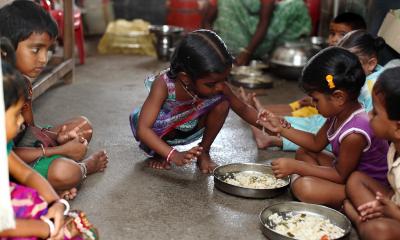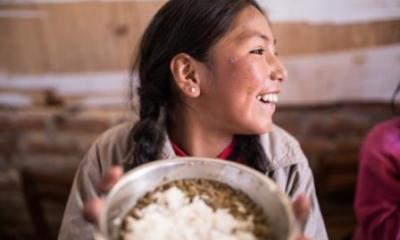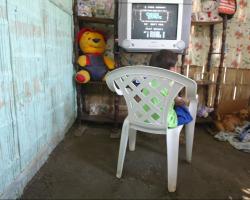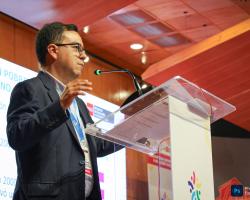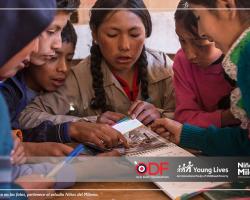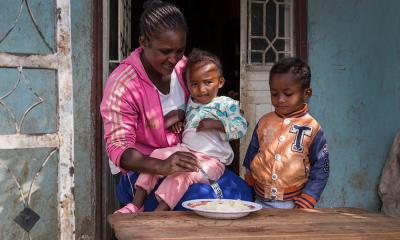
In Peru, we have seen significant improvements in the well-being of children and their families since Young Lives began in 2002. The government has invested heavily in infrastructure, and access to basic services has improved (especially in education and health). Chronic malnutrition among children under 5 years of age has dropped from 31% to 18% and the enrolment rate in primary school is almost universal.
However poverty continues to be concentrated in indigenous and rural communities, and the services they access are of lower quality than those in urban areas. This is reflected in inequalities in the outcomes of children, as well as in the opportunities that are offered to them.
The Young Lives team in Peru is focused on providing evidence to policy makers to ensure that addressing inequality remains a priority.
Young Lives is able to monitor the growth and nutrition of our two cohorts, now 20 and 27 years of age, while studying household food security and dietary diversity. We are noticing an increase in those who are overweight or obese among our older cohort.
Currently, we are investigating the impact of COVID-19. Many of the young people in our study have been experiencing food insecurity despite financial aid from the government. In addition, our data shows that the younger cohort have had to interrupt or change their education. You can find out more on our country website. Read a summary of Young Lives' work in Peru via the button below
In Peru, we have seen significant improvements in the well-being of children and their families since Young Lives began in 2002. The government has invested heavily in infrastructure, and access to basic services has improved (especially in education and health). Chronic malnutrition among children under 5 years of age has dropped from 31% to 18% and the enrolment rate in primary school is almost universal.
However poverty continues to be concentrated in indigenous and rural communities, and the services they access are of lower quality than those in urban areas. This is reflected in inequalities in the outcomes of children, as well as in the opportunities that are offered to them.
The Young Lives team in Peru is focused on providing evidence to policy makers to ensure that addressing inequality remains a priority.
Young Lives is able to monitor the growth and nutrition of our two cohorts, now 20 and 27 years of age, while studying household food security and dietary diversity. We are noticing an increase in those who are overweight or obese among our older cohort.
Currently, we are investigating the impact of COVID-19. Many of the young people in our study have been experiencing food insecurity despite financial aid from the government. In addition, our data shows that the younger cohort have had to interrupt or change their education. You can find out more on our country website. Read a summary of Young Lives' work in Peru via the button below



